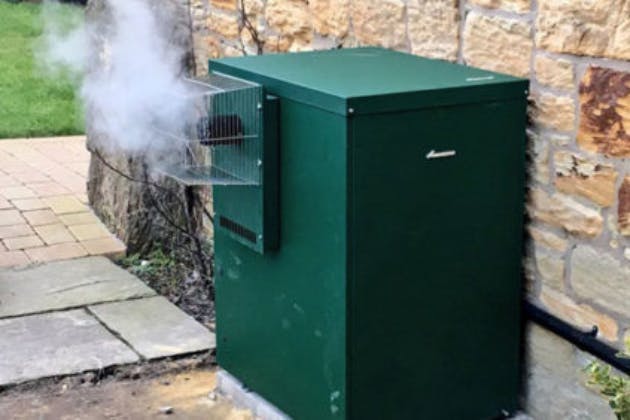Safety always comes first, and this is even more when it comes to your heating oil tank. Any cracks or corrosion may cause leaks and expensive maintenance work, not to mention the need to replace all of your heating oil. Maintaining and inspecting your heating oil tank regularly will assist in prolonging its life and boosting fuel efficiency.
In this blog, our oil boiler experts offer their best advice to keep your oil tank safe.

Our guide to keeping your oil tank safe
Check Manufacturer Guidelines
When you get your oil tank installed for the first time, it should come with manufacturer instructions tailored to the model you bought. It is always handy to check the instructions to ensure that everything is set up and working correctly.
Oil Tank Maintenance
We recommend checking your oil tank at least once a week to look for signs of corrosion, rust or discolouration. You should also look out for any cracks or leaks.
In addition to your regular boiler servicing, you should request your heating engineer to check the tank. Oil Safe Assured suggests having your tank examined once a year to ensure adequate maintenance by a qualified Oil Safe Assured engineer.
Locate the Shut-Off Valve
It is always good to know where the shut-off valve is, especially during an emergency. This can be found at the bottom of the oil tank. If you are unsure where the valve on your tank is, give us a call, and we will be happy to help!
Carry out annual servicing
All heating systems should be serviced at least once a year. This is to help detect any issues with your oil heating system. This should be performed by Oil Safe Assured engineers as they are the only ones qualified to do this.
Ensuring Safe Oil Tank Installation
Proper installation of your oil tank is crucial for its safety and efficiency. Here are some key factors to consider:
- Location: Your oil tank should be installed on a stable, level surface, away from potential sources of damage or tampering.
- Ventilation: Adequate ventilation around your oil tank is essential to prevent the buildup of fumes and gases. Ensure that the area around your tank is clear and well-ventilated.
- Protection: Consider installing a protective barrier around your oil tank to prevent accidental damage from vehicles or other equipment.
- Regulations: Ensure that your oil tank installation complies with local regulations and codes. This may include requirements for tank size, location, and safety features.
- Professional Installation: It's always best to hire a professional oil boiler service engineer for the installation of your oil tank. They will ensure that your tank is installed correctly and safely.
By following these guidelines, you can ensure that your oil tank is installed safely and efficiently, providing you with reliable heating for years to come.
FAQs for Oil Boiler Maintenance
How often should I check my oil tank for maintenance?
We recommend checking your oil tank at least once a week for signs of damage or leaks.
What should I do if I notice a leak in my oil tank?
If you notice a leak, contact an oil boiler engineer immediately for assistance. Do not attempt to do the oil boiler repairs yourself.
How can I prevent corrosion in my oil tank?
Regular oil boiler maintenance, including checking for signs of corrosion and rust, can help prevent corrosion. Additionally, keeping your tank clean and dry can help prolong its life.
Is it necessary to have my oil tank serviced annually?
Yes, annual servicing is recommended to ensure your oil tank is in good working condition and to detect any potential issues early on.
Contact an Oil Safe Assured Engineer
At Green and Reliable, our Oil Safe Assured engineers are available throughout Wetherby, York and Harrogate. To book your next oil boiler servicing, call us on 08001182467 or 07717574470.


